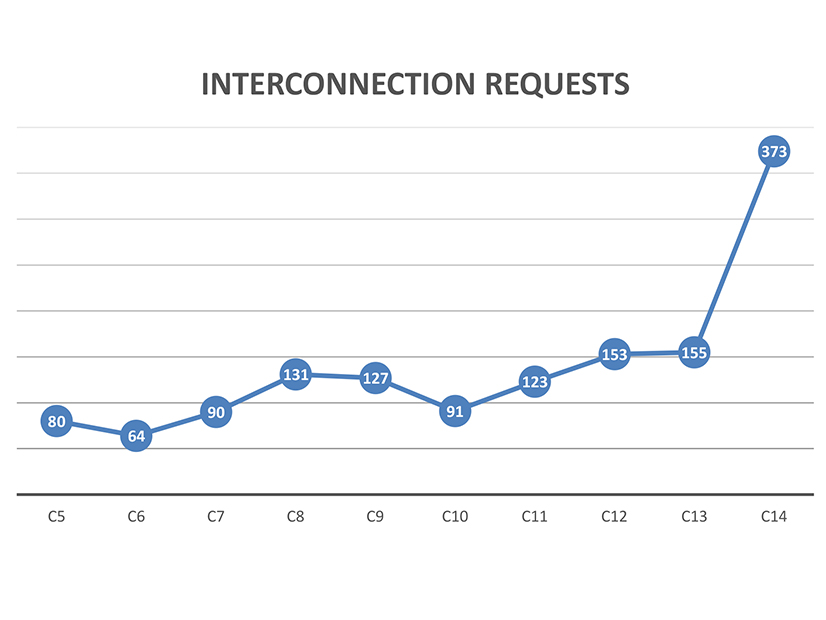FERC on Dec. 16 approved CAISO’s request to further streamline its generator interconnection process in response to the high volume of requests in its interconnection queue.
The commission’s order permits the ISO to apply six sets of tariff revisions related to its Generator Interconnection and Deliverability Allocation Procedures (GIDAP) and associated Generator Interconnection Agreements (GIAs) to resources that joined the queue in Cluster 14 — which opened in April 2021 — or earlier.
The tariff revisions won’t apply to interconnection customers that already have executed GIAs or have requested that GIAs be filed unexecuted.
In September, FERC approved a larger proposal to streamline the ISO’s interconnection process starting with 2023’s Cluster 15 and beyond. (See FERC Approves CAISO Plan to Streamline Interconnection Process.)
The newest tariff amendments are intended to manage the “large volume of interconnection requests already studied but for which GIAs have not yet been executed,” the commission noted in its order (ER25-131). The revisions are a result of the ISO’s Interconnection Process Enhancements (IPE) initiative, which involved over a year of stakeholder engagement that led to the approval of refinements to the process.
The IPE proposal is intended to complement — not replace — CAISO’s FERC Order 2023 compliance filing, which is still pending approval. The order states that, while the tariff revisions in the most recent filing touch on some reforms in the Order 2023 filing, “CAISO does not propose revisions to any section of its tariff pending commission acceptance.”
The six sets of tariff revisions the commission approved Dec. 16 will:
Subject new small asynchronous generating facilities in Clusters 14 or earlier to fault recording requirements that CAISO currently applies only to asynchronous generating facilities larger than 20 MW.
-
- Update the granularity of phase angle measuring unit data for asynchronous facilities by increasing the sampling rate of that data.
-
- Unify the payment and authorization schedules among interconnection customers sharing network upgrades to develop a construction timeline necessary to meet the earliest interconnection customer’s commercial operation date.
-
- Increase the material modification assessment (MMA) deposit cost from $10,000 to $30,000 and extend the estimated time to complete an MMA from 45 days to 60 days.
-
- Create a new “implementation deposit” of $35,000 to cover specific customer costs after completion of interconnection studies in order to avoid passing off those costs to other market participants.
-
- Limit the ability of a customer to linger in the queue after it gives up its deliverability rights.
The commission said CAISO’s proposals “will improve the accuracy of data about the system, help mitigate reliability issues, enhance the certainty and efficiency of the network upgrade process, ensure that the costs of managing interconnection requests between GIA execution and commercial operation are not allocated to all market participants, and reduce administrative overhead.”
The new rules become effective Dec. 17.
Robert Mullin contributed to this article.



